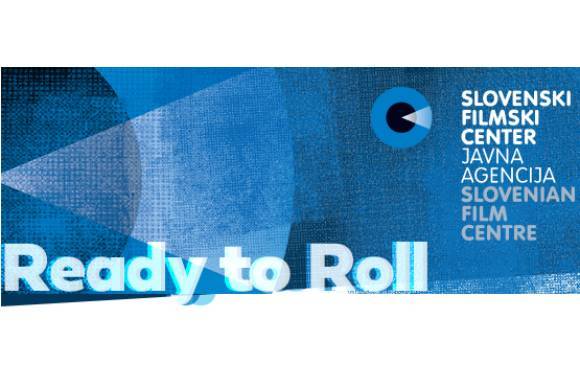So, new year, old us, still eager and “hungry”. Our films, majority and minority co-productions are heading for big festivals, such as IFFR and Berlinale, but also for the smaller, more specialized gatherings like Trieste and FipaDoc. Others are about to get into different production or distribution stages. And we started this newsletter to keep the interested parties better informed about the activities of the Slovenian Film Centre and the cinema in Slovenia in general.
Berlinale
This 75th edition of Berlinale could be considered a milestone one in several aspects, including the change of its leadership and the re-organized programme structure. With five majority, parity and minority co-productions, four of them in feature-length format, in official selections, the presence of Slovenian cinema is also strong this year. Probably the biggest news is the fact that the Slovenian majority production is selected to open the new competition programme Perspectives.
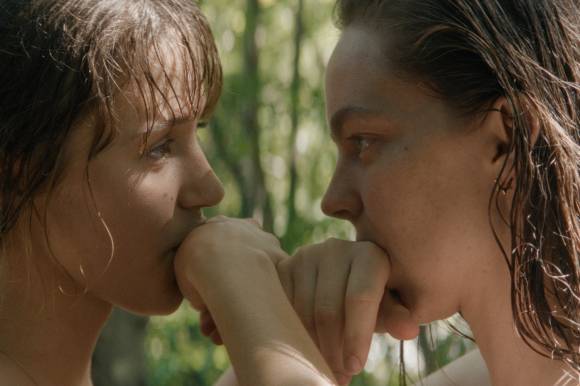
Little Trouble Girls is the debut of the award-winning filmmaker Urška Djukić (best known for her previous effort, the 2021 animated short Granny’s Sexual Life, co-directed with Emilie Pigeard, which won numerous prizes, including the César in its category). It tells the story of the sexual awakening of the 16-year-old girl Lucija. The film was realized in co-production between Slovenia (through the companies Spok Films, Nosorogi and OINK), Italy (Staragara IT), Croatia (365 Films), Serbia (Non-Aligned Films), with the French associate producer Sister Production and with the financial aid of the numerous national, regional and pan-European institutions. Most of its cast and crew comes from Slovenia, though. The cast is lead by Jara Sofija Ostan, Mina Švajger, Saša Tabaković, Nataša Burger and others, the script was written by the filmmaker and her regular collaborator Maria Bohr, Lev Predan Kowarski served as the cinematographer, Vasja Kokelj as the production designer, Julij Zornik as the sound designer and Eva Uršič as the key make-up artist.

On the other hand, the Generation KPlus title Tales from the Magic Garden is quite a unique case in contemporary cinema. It is a parity co-production coming from four countries on completely equal terms. Slovenia is represented by the director Leon Vidmar, the screenwriters Jerneja Kaja Balog and Maja Križnik, as well as the producer Kolja Saksida from the ZVVIKS production company. The rest of the directorial (David Súkupa, Patrik Pašš and Jean-Claude Rozec), screenwriting (Blandine Jet, Patrik Pašš, Marek Král and Petr Krajiček) and production teams (companies Maurfilm, Artichoke and Vivement Lundi!) come from Slovakia, Czech Republic and France. The production of this stop-motion animation began in 2017 and lasted for 435 workdays with 16 animators, which ended up with the total of 71 minute of runtime.
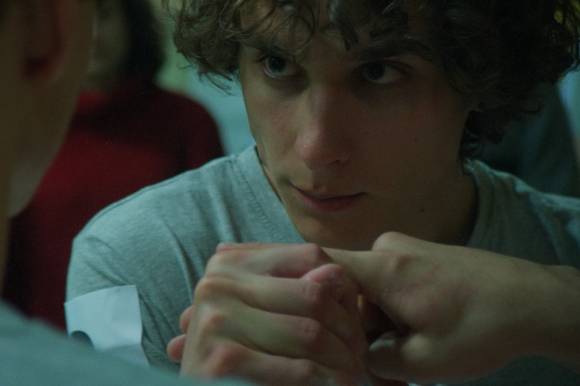
The related Generation 14Plus sidebar will also host the premiere of Sandbag Dam. The newest effort by the Croatian filmmaker Čejen Černić Čanak (whose previous 2017 feature The Mystery of Green Hill signals that she is somewhat specialized in cinema for younger audiences) is a co-production between Croatia (represented by Kinorama), Slovenia (Perfo) and Lithuania (Tremora). The Slovenian contribution to the film was Marko Brdar’s cinematography and Julij Zornik’s sound design. Another Slovenian minority co-production, Jakob Krese’s documentary Ceasefire will compete at Berlinale Shorts section. The German-Italian-Slovenian co-production between the companies Majmun Films, Zero Stress Production and Pótem tells the story of the woman named Hazira who still lives in the refugee centre after her village on a hill above Srebrenica was razed in the war.
Another Slovenian minority co-production will enjoy its world premiere at Berlinale, in non-competitive, but still prestigious Forum section. Eighty Plus is the newest effort of the Serbian veteran documentarian Želimir Žilnik who has a stellar track record with Berlinale, especially when it comes to his not-exactly-documentary works. His feature-length debut Early Works scooped the Golden Bear back in 1969, while Marble Ass was awarded with Teddy in 1995. Eighty Plus is a docu-fiction that tells the story of the retired jazz musician Stevan who comes back from Germany to finalize the restitution of his childhood home, where a series of reunions sheds some new light on his life. The script was written by the filmmaker and Tanja Šljivić, produced by Sarita Matijević Žilnik for Playground, while Miha Černec (Staragara) and Jožko Rutar (Tramal) served as the co-producers.
The producer and the screenwriter Iza Strehar was chosen for Berlinale Talent Campus. She has got two projects, Liberté (in development) and Purgatory (in pre-production), while the body of her previous works includes features Bitch, a Derogatory Term for a Woman and Shooting Blanks, as well as documentaries Melting Dreams and Woman of God.
Lastly, the European Children’s Film Association (ECFA) Award will be also given away during Berlinale. This year, one of the nominees also comes from Slovenia. Klemen Dvornik’s Block 5 secured the nomination by triumphing at Castellinaria Film Festival in Bellinzona, Switzerland.
The Slovenian Film Center - the central film institution in Slovenia will present a Slovenian film for the twentieth time on a joint stage with the Czech Cinematography Fund and the Slovak Film Institute, under the joint brand CEC-Central European Cinema, where they will also proudly share the joint animated feature film Tales from the Magic Garden.
Rotterdam
This 75th edition of Berlinale could be considered a milestone one in several aspects, including the change of its leadership and the re-organized programme structure. With five majority, parity and minority co-productions, four of them in feature-length format, in official selections, the presence of Slovenian cinema is also strong this year. Probably the biggest news is the fact that the Slovenian majority production is selected to open the new competition programme Perspectives.

In the last years, the presence of the regional cinema, Slovenian included, has become more notable at one of the world’s biggest independent film festivals. This year, five titles have Slovenia listed as its (co-)production country, which could be considered as a success, despite the fact that neither of the feature-length films is a Slovenian production or majority co-production. However, both of the Slovenian minority co-productions are competing for the Tiger Award.
Directed by Igor Bezinović, whose previous feature A Brief Excursion also premiered at Rotterdam back in 2017, Fiume o morte! is one of the most expected films in the region of former Yugoslavia. This docu-fiction realized in the co-production between Croatia (Restart), Slovenia (Nosorogi) and Italy (Videomante) tells the story of the 16-month occupation of the city of Fiume (now Rijeka, Croatia) by the Italian poet and the military leader Gabriele D’Annunzio. Bezinović’s approach combines the archive footage, dramatic reconstructions, interviews with the cast members and informative documentary interludes in order to open the dialogue between the epochs formally one century apart, but actually more alike than anyone would admit. Eventually, the film ended up with two prestigious awards, the main Tiger given out by the festival jury and the award of the FIPRESCI jury. More about it will be available in the next newsletter.
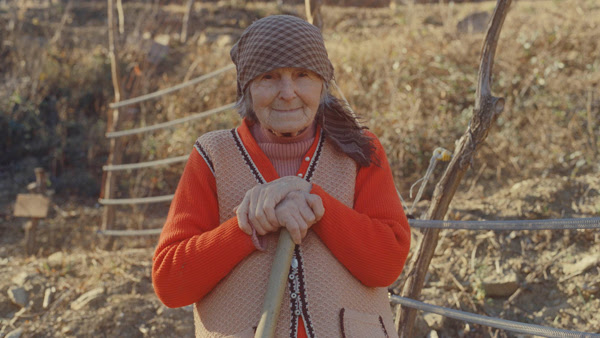
On the other hand, the feature-length debut by Stefan Đorđević started as an autobiographical documentary, but after the death of the filmmaker’s mother, it transformed into something way more introspective and meditative. Otherwise, Đorđević is somewhat of an erudite phenomenon on the Serbian cinematic scene, since he was introduced to the world of film by acting in Nikola Ležaić’s Tilva Roš (2010), served as cinematographer for other filmmakers and directed several music videos and short films (including the award-winning The Last Image of Father) before moving to the feature-length format. Wind, Talk to Me is a Serbian-Slovenian-Croatian co-production between the companies Non-Aligned Films, Katunga, SPOK Films, Staragara Production and Restart.
Gregor Božić’s short film Common Pear competes in the Tiger Short Competition slot of the festival. It could be described as a docu-fiction with which the filmmaker pays tribute to the old fruit-growers in the region of Primorska. Interestingly, Božič occupies several positions within the crew: aside from being the director, he is also the cinematographer, co-writer (with the producer Marina Gumzi) and co-editor (with Lukas Miheljak).
One more Slovenian short film, the newest work of the legendary avant-garde and experimental auteur Davorin Marc, will be screened out of competition. ….Yellow Dawn might serve as an example of Marc’s later-career work in which he digitally mimics the analogue procedures of the past. The same programme section also hosts the world premiere of the Serbian-Spanish-Slovenian-Croatian co-production short film Upon Sunrise directed by Stefan Ivančić. It is a short fiction film centred around the single mother Marija (Milica Janevski) who resorts to petty scams in order to make ends meet and support her son that offers a glimpse into the modern-day inequality within the Serbian society.
Read more about Slovenian cinema at the IFFR here
The Man Who Could Not Remain Silent
Along with the Academy Award nomination for the short film (A)Torsion (2003), directed by Stefan Arsenijević and made in Slovenian production, The Man Who Could Not Remain Silent is the second Slovenian minority co-production to achieve such success. Back in 2001, Danis Tanović’s No Man’s Land ended up as the Oscar winner in the Best Foreign Language Film category. Could Nebojša Slijepčević’s work also go all the way in the Best Live Action Short Film category?
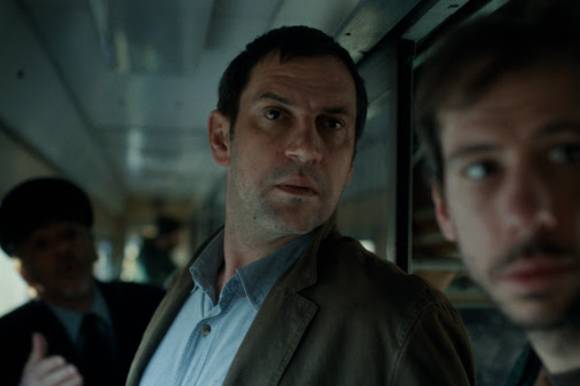
This 11-minute short was based on a newspaper article about the true war crime from the 90s wars. The train from Belgrade to Bar in Montenegro was stopped at an abandoned station in the village of Štrpci in east Bosnia, and the Bosnian-Serb paramilitary forces took hostages from the rank of passengers. All of them were Bosniak, with an exception of the retired Yugoslav People’s Army captain Tomo Buzov, Croatian by nationality, but based in Belgrade. This is a story about him, but seen from an unexpected angle.
Regarding the Slovenian contribution to the film, Nebojša Pop Tasić played the role of the conductor Grujo, Gregor Božič served as the DoP and Boštjan Virc (of Studio Virc company) as the producer. The film was also financially supported by the Slovenian Film Centre and technically by Viba Film.
Dreams went bigger with this one with each new screening and award. It was one of the last titles confirmed to be selected at Cannes, but already its world premiere was triumphant – crowned with Palme d’or. Festivals all over the world, from Toronto to Melbourne lined up and the awards kept pouring in. Two of them in Slovenia as well. The film was awarded with Special Mention in Balkans competition at FEKK in Ljubljana, while Gregor Božič also got the Special Mention for his camerawork at FSF in Portorož. The newest award comes from the recently finished Trieste Film Festival.
However, two consecutive news, of the winning of the European Film Academy (EFA) Award and being shortlisted for the Academy Award raised the hopes properly. Now, with the confirmation in the form of the nomination, published on 23 January, as well as the nomination for the César award, they are sky-high. So, let’s keep our fingers crossed!
FIPADOC
This year’s edition of FIPADOC (Biarritz, France, 24 January – 1 February) selected Balkans (defined as seven ex-Yugoslav countries plus Albania) as the focus region. Films and minority co-productions from Slovenia were screened in the special focus programme.
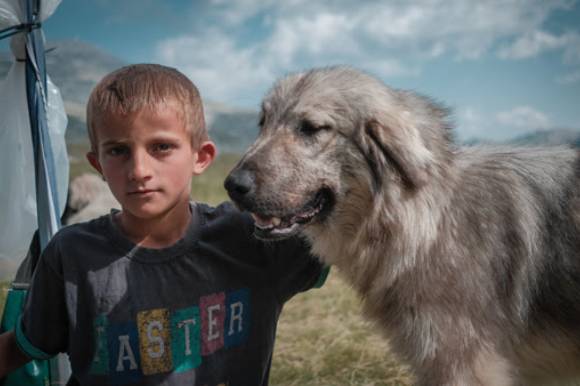
The festival was also the place for the world premiere of the Slovenian filmmaker Petra Seliškar’s My Summer Holiday, made in co-production between North Macedonia (Petra Pan Films PPFP Macedonia), Slovenia (Petra Pan Films) and France (Cinéphage Productions). This mid-length documentary tells the story of Basri and his teenage brothers who spend their summers as shepherds deep in the Macedonian mountains. For him, it is pure freedom, while the older, teenage brothers dream of a different life.
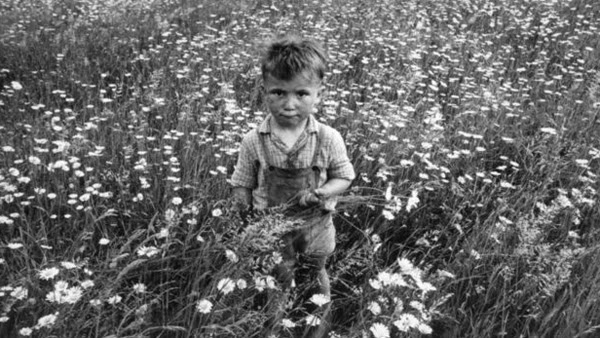
Another Slovenian title, A Tree Grows in My Dreams Every Night, directed by Vid Hajnšek, was shown in the same selection. Hajnšek’s mid-length documentary which premiered last year at Thessaloniki is actually a meditation on memories, solitude and creativity situated in the rural, wine-making region of Haloze where the old traditions meet contemporary trends, seen through the lens of the photographer.
The Slovenian-Serbian co-production Bottlemen was also screened in the Focus Balkans programme. Directed by Nemanja Vojinović, the feature-length documentary tells the story about people surviving on the fringes of society by picking plastic bottles from a landfill on the outskirts of Belgrade, processing and re-selling the plastics for recycling, but structured in a way resembling a gangster drama. It has been touring the festivals since its premiere at 2023 Sarajevo Film Festival.
FIPADOC will also host the world premiere of the short documentary One Meter Is Six Centimeters directed by Juš Jeraj and Atila Urbančič. Produced by Nosorogi, it brings the story of the sculptor named Cena whose dream childhood dream to become a record-breaking ski jumper was destroyed by his poor health, only to live on in another form, through the ski jumping championship he organizes in his garden.
Trieste
The 36th edition of Trieste Film Festival ran from 16-24 January. Its status of a fairly important film gathering, especially in the terms of cinema and industry of Central, Eastern and Southeast Europe, as well as its geographical proximity to Slovenia, usually means that Slovenian presence there is strong. However, with only three majority and minority co-production titles in different sections, this year it was not as strong as it was some previous years.
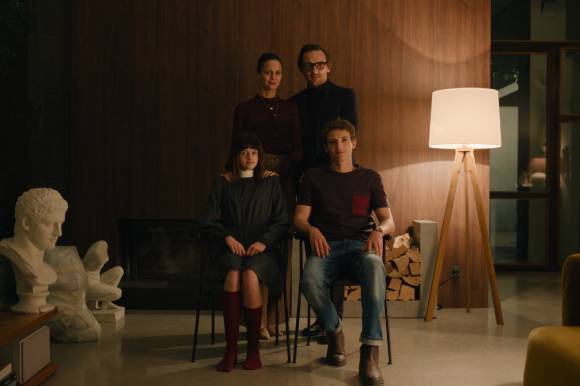
Sonja Prosenc’s Family Therapy was screened in the feature competition, extending its already solid “track record”. Since the premiere at Tribeca last spring, it scooped CICAE award at Sarajevo, secured the status of the national entry for 2025 Oscars and triumphed at last year’s Festival of Slovenian Film with 7 Vesna awards.
The Croatian-French-Bulgarian-Slovenian short film The Man Who Could Not Remain Silent, directed by Nebojša Slijepčević, also competed in the shorts category. Slijepčević’s film has been touring festivals (collecting awards in process) since the triumphant premiere at Cannes, and the Trieste screening was the latest before the news of the Academy Award Nomination broke out. In the meanwhile, it was also awarded as the best short film in its competition.
The newest film by Danis Tanović, the Croatian-Bosnian-Romanian-Slovenian-Serbian co-production My Late Summer was also shown at Trieste. It is Tanović’s 10th feature, but the filmmaker is still best known for his Oscar-winning debut No Man’s Land (2001), also realized in co-production with Slovenia.
Distribution
The beginning of the year saw the distribution of several Slovenian films and minority co-productions. Entering distribution in December last year, Perica Rai’s horror-thriller It Was a Beautiful Day was still screened in January in multiplex cinemas. However, the new hope for domestic box office was Ciao Bela, which is now in the wide distribution both in the multiplexes and individual theatres. Jani Sever’s drama for youth audiences premiered at last year’s Festival of Slovenian Film with one award: Krešimir Mikić scooped Vesna for Best Supporting Actor.
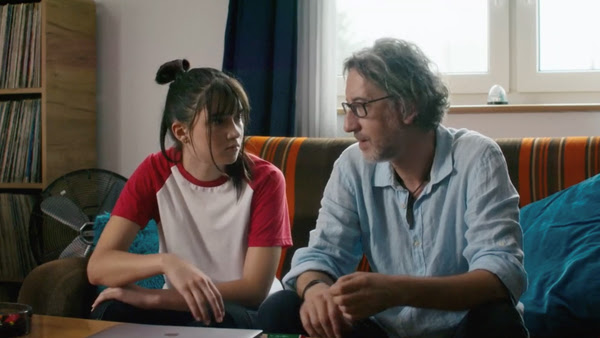
Slovenian films felt more at home at the Art Cinema Network theatres. Some titles like A Tree Grows in My Dreams Every Night, Maja Doroteja Prelog’s Cent’anni and Gram of Heart by Jan Cvitkovič (which is distributed completely independently) found themselves on the programme of Ljubljana’s Kinodvor in January, while the same cinema re-ran Family Therapy. The news are the distribution of two documentaries, Nina Blažin’s The Silence of Life (previously screened at the FSF and Torino Film Festival) and Ema Kugler’s Once upon a Time in Soča Valley, which premiered at Dokudoc in Maribor and was also screened at the FSF. Blažin’s documentary started its distribution cycle on 30 January, while Kugler’s did so on 4 February.
Danis Tanović’s My Late Summer also went into distribution in the independent and local theatres in January. Given that it is labelled to be a summer movie, maybe the distribution of the Sarajevo Film Festival opener in winter seems like a counter-intuitive move, but maybe the audiences also crave some summer colours and flavours to warm up.
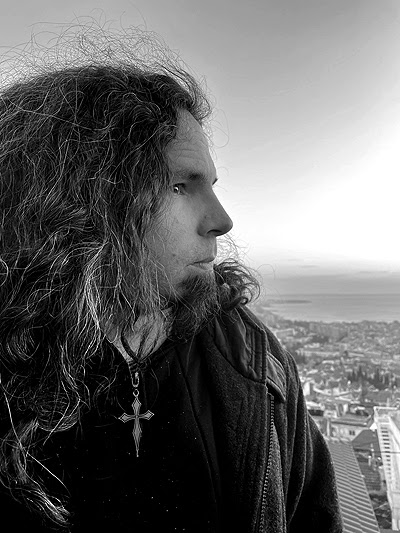 About the Author
About the Author
Slovenian Film Centre’s monthly newsletter is written and edited by Marko Stojiljković.
Marko is a film critic with over the decade of experience in the field on the regional and international level. He regularly contributes to the international outlets like Cineuropa, Asian Movie Pulse and Eye for Film, as well as the regional ones like the daily paper Pobjeda in Montenegro, the show Filmoskop on Croatian Radio, web portal Lupiga and magazine Dialogi. He is also the co-founder of the web portal Ubiquarian, specialized in documentaries and short films and the member of the Slovenian branch of FIPRESCI and the Croatian Film Critics Association.

